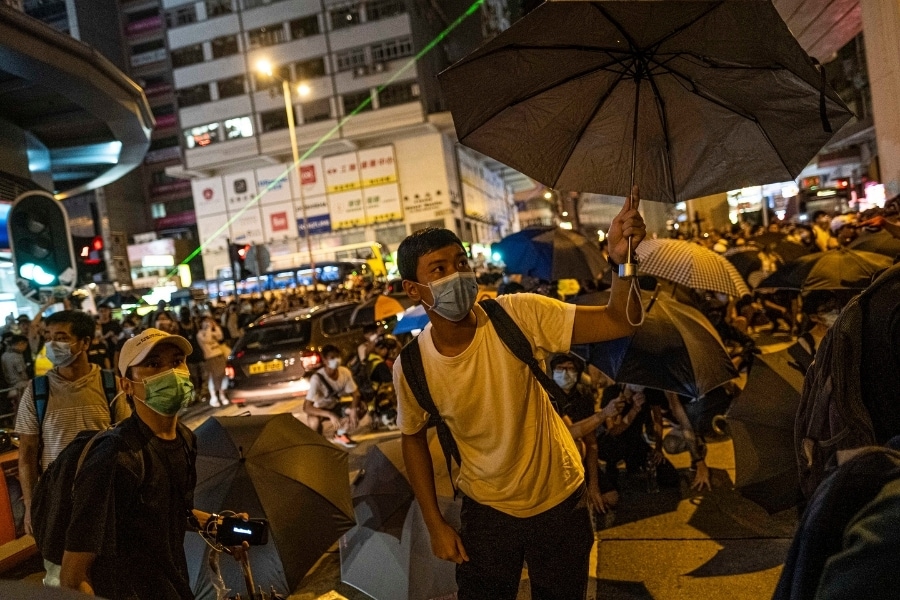
Disinformation for hire, a shadow industry, is quietly booming
The result is an accelerating rise in polarising conspiracies, phoney citizen groups and fabricated public sentiment, deteriorating our shared reality beyond even the depths of recent years
 FILE — Demonstrators clash with riot police officers in Hong Kong, Sept. 6, 2019. Back-alley firms meddle in elections and promote falsehoods on behalf of clients who can claim deniability, escalating our era of unreality. (Lam Yik Fei/The New York Times)
FILE — Demonstrators clash with riot police officers in Hong Kong, Sept. 6, 2019. Back-alley firms meddle in elections and promote falsehoods on behalf of clients who can claim deniability, escalating our era of unreality. (Lam Yik Fei/The New York Times)
In May, several French and German social media influencers received a strange proposal.
A London-based public relations agency wanted to pay them to promote messages on behalf of a client. A polished three-page document detailed what to say and on which platforms to say it.
But it asked the influencers to push not beauty products or vacation packages, as is typical, but falsehoods tarring Pfizer-BioNTech’s COVID-19 vaccine. Stranger still, the agency, Fazze, claimed a London address where there is no evidence any such company exists.
Some recipients posted screenshots of the offer. Exposed, Fazze scrubbed its social media accounts. That same week, Brazilian and Indian influencers posted videos echoing Fazze’s script to hundreds of thousands of viewers.
The scheme appears to be part of a secretive industry that security analysts and U.S. officials say is exploding in scale: disinformation for hire.
©2019 New York Times News Service







